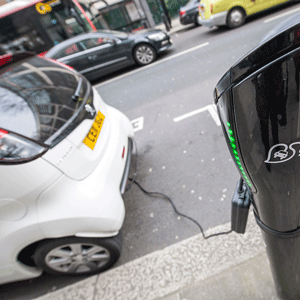
As with any public service, the benefits of parking management are felt both by the users of the service and by society. Benefits are considered ‘private benefits’ where they deliver direct benefit to individual users or ‘external benefits’ where they deliver wider benefits to society. The sum-product of private and external benefits equates to the total ‘social benefit’ or the ‘full benefit’ of parking management. Economists sometimes refer to benefits as ‘gains’ or ‘positive externalities’. The social benefit delivered through the function of parking management must outweigh the social cost for it to be a worthwhile public service.
Generally, private benefits are easily perceived because they impact directly on users (usually delivering financial gain), whereas external benefits are not readily perceived as their effects are distributed diffusely across society.
In the context of parking management, most benefits are external but with private elements. For instance, the external benefit of reducing congestion is increased flow on the highway network which ultimately leads to increased economic output to the benefit of everybody whether they benefitted directly from the reduction in congestion or not. Conversely, the private benefit is the journey time saving for each individual affected plus any savings accrued e.g. from reduced fuel expenditure. These savings ultimately result in more disposable time and income for beneficiaries to engage and invest in activities that bring them direct utility.
While one could conceivably draw up an extensive list of benefits accrued from parking management, their external nature ensures that they are diffuse in impact and difficult to quantify, hence this report considers only the main ones which parking schemes actively seek to deliver which have been identified through the research as:
- Reduced congestion - Case Study: Vienna’s ‘Parkraumbewirtschaftung’
- Improved road safety - Case Study: Havering’s Public Space Protection Order (PSPO)
- Ensurance of good access and accessibility - Case Study: Bromley and Bexley: Blue Badge Misuse Campaign
- Promotion of the local economy - Case Study: Consolidating servicing activities in Central London
- Maximisation of the productive use of land resource - Case Study: Making best use of a scarce resource – Southwark’s Kerbside Strategy
- Promotion of health and wellbeing through travel choice
- Providing funding for parking and wider transport scheme improvements - Case Study: Funding the Freedom Pass through parking revenue

